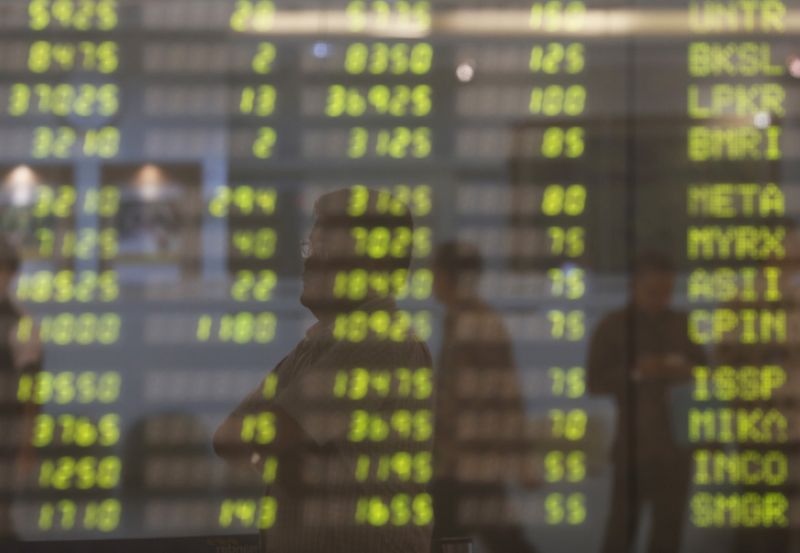By Gaurav Dogra
(Reuters) - Emerging Asian equities ex-China saw monthly foreign inflows in July, after six months of capital withdrawals, as investors bet that the size of U.S. interest rate hikes would ease, and that a recent drop in commodity prices would temper surging inflation.
Riskier assets were bolstered after the U.S. Federal Reserve's comments that "at some point" it would be appropriate to slow down its policy tightening.
Data from stock exchanges in South Korea, India, Taiwan, the Philippines, Vietnam, Indonesia and Thailand showed that foreigners purchased equities worth a net $1.23 billion, their first monthly net buying since Dec 2021.
Monthly foreign investment flows in Asian equities: https://fingfx.thomsonreuters.com/gfx/mkt/xmvjomgzepr/Monthly%20foreign%20investment%20flows%20in%20Asian%20equities.jpg
"Despite a 75 bps rate hike, Fed Chair Powell’s repeated reference to a 'soft landing' quelled the recession fears somewhat," said Manishi Raychaudhuri, head of APAC equity research at BNP Paribas (OTC:BNPQY).
"However, we have to remain cautious about the near term when it comes to capital flows as the Fed has just commenced QT (quantitative tightening to reduce its balance sheet) and the pace of QT shall accelerate significantly till September."
South Korean equities attracted the most inflows in the region, luring $1.37 billion, the biggest foreign buying since December.
Meanwhile, Indian stocks obtained $618 million in their first monthly foreign inflow since September as oil prices dropped, easing some concerns over its trade deficit.

Thai equities also saw some purchases by foreigners last month, which amounted to a net $125 million.
According to Jun Rong Yeap, a market strategist at IG, Asian equities could attract more foreign inflows until the Fed's Jackson Hole Symposium in late August, when investors could gain more clarity on the Fed’s policy moves. "Until then, emerging Asian ex-China equities could potentially tap on the improved risk environment."